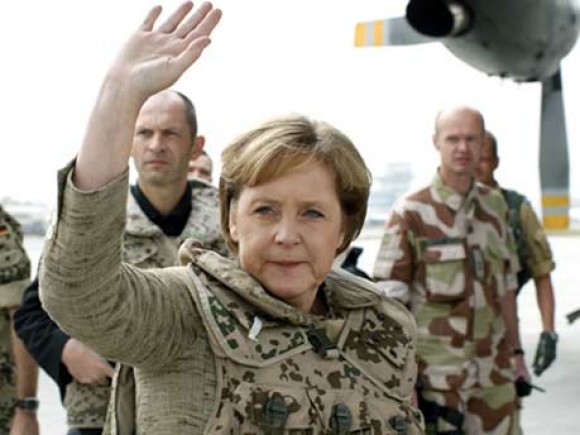
From Matthias Gebauer, Spiegel: In a surprise move, Germany’s government announced on Thursday plans to keep up to 800 military trainers in Afghanistan after NATO combat troops withdraw in 2014. Though perhaps bold and symbolic, the move is also tactical in terms of upcoming elections. . . .
With Thursday’s announcement, two things are certain. One is that Germany’s armed forces, the Bundeswehr, will continue to play an important role in the Hindu Kush region, even following the withdrawal of NATO combat units. After the Americans, it appears the Germans will be the second-largest supplier of troops for the post-ISAF mission, which NATO has been dubbed operation "Resolute Support."
And, second, the announcement indicates that the German government has accepted the request by the United States that Germany maintain its leadership role in northern Afghanistan even after 2014. It had been precisely this point that had led to months of arduous internal wrangling in Berlin, especially given the fact that such a role would require the presence of considerably more soldiers than Germany had initially intended to provide.
The surprising naming of numbers is tightly linked to these concerns. Berlin had actually wanted to wait for the US, as the largest military power present in Afghanistan, to set the tone. So far, Washington has only hinted that it might provide up to 5,000 soldiers for the training force. Washington would like to see the rest of the planned military-training units, which are to be collectively comprised of 8,000 to 12,000 personnel, to be staffed by troops from other countries.
With Washington unable to decide and postponing a detailed plan until the fall of 2013, Berlin has opted for another solution. The number of troops it is proposing to deploy is designed to encourage smaller nations — such as Sweden, Norway and even Mongolia — to support the German mission in northern Afghanistan. If that works out, one could soon muster the 1,500 soldiers presumably needed for the mission in the north.
Berlin’s efforts to push ahead within NATO could be viewed as bold. In recent years, NATO countries have generally been slow to commit to the framework for a new, post-2014 Afghanistan mission that was endorsed by defence ministers from NATO Allies and ISAF partner nations in October 2012. Talks on troop deployment were more like games of poker, with participants playing their cards close to their chest, than discussions among allies. Given Germany’s abstention in a 2011 UN vote on authorizing the use of force against Libya, which led many to accuse Germans of being shirkers, Berlin’s decision to move forward on this issue alone might also be highly symbolic. (photo: DPA/Picture-Alliance)
Image: dpa%204%2019%2013%20merkel%20afghanistan.jpg
